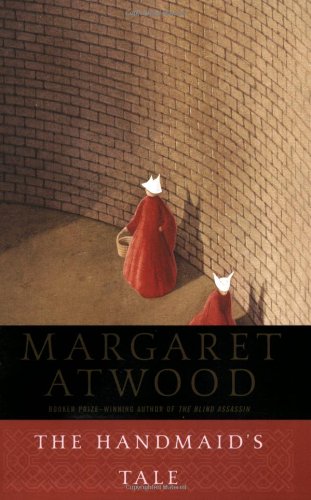The Handmaid’s Tale by Margaret Atwood
Margaret Atwood was once, via a review of her work, once taken a bit publicly to task by Ursula K. LeGuin for not wanting her books (specifically The Handmaid’s Tale, Oryx and Crake, and The Year of the Flood) to be labeled “science fiction,” because, LeGuin speculated, Atwood did not want to be relegated to the genre ghetto. Atwood, however, responded that it was merely a definitional issue.
Read More

 (1939- )
(1939- )


















Do it! One of the best things I've read in recent years.
This reminds me. I want to read Addie LaRue.
We’re in total agreement David!
I felt just the same. The prose and character work was excellent. The larger story was unsatisfying, especially compared to…
Hmmm. I think I'll pass.